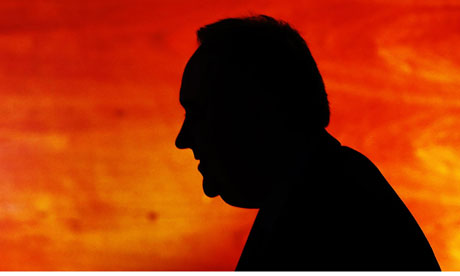
Alex Salmond, Scotland's first minister, has proved a dab hand at importing experts to opine on issues affecting the future of the country, bolstering the legitimacy of independence as a project – even if the experts themselves are themselves not necessarily nationalists.
Nobel Laureate Paul Stiglitz has been contributing (most helpfully from the Scottish National Party's viewpoint) on the currency an independent Scotland might adopt. The Scottish government has just announced the creation of an expert panel on the future of welfare, its credibility assured by the presence of the likes of Professor Mike Brewer, the Essex University expert on social security, and Darra Singh, former chief executive of the London Borough of Ealing and of Jobcentre Plus.
Might Salmond do something parallel on the future shape of the Scottish state? What happens to public service in the event of Scotland seceding from the United Kingdom? He did establish a commission on public services in 2010, chaired by Campbell Christie, formerly secretary general of the Scottish Trades Union Congress. However, its members were all from Scottish backgrounds.
What's missing is debate (in public, at least) about the wider dimension of public services, especially the future of civil servants.
On one level, there's no issue. Sir Peter Housden has proved an unobtrusive permanent secretary who has – to all intents and purposes – kept up a positive relationship with Salmond and SNP ministers. I predicted, wrongly, that the SNP establishment would take the appointment of an Englishman ill, especially one whose Whitehall career had passed under a cloud. Instead, Housden seems to have steered a steady course, leaving no space for anyone to raise the obvious question – how long can UK civil servants serve an increasingly separatist administration?
And not just Housden. The head of the civil service, Sir Bob Kerslake, made a point in his recent first anniversary note of mentioning visits to East Kilbride, the administrative seat of the Department of International Development. Salmond has, oddly, played a part. His government has chosen not to make much of a fuss about the wholesale changes to the benefits system being enacted by the Cameron government – leaving in place the sense that the Department for Work and Pensions, and its Scotland-based staff, remain a legitimate part of Scottish public services, despite its UK identity.
Ahead lies the referendum. Edinburgh observers say Salmond isn't really focused on a vote the SNP is likely to lose but on the elections to the Scottish parliament in 2016 and how to play his hand against London over coming years. A no vote next year is likely to be felt by many Scots (including the Labour opposition at Holyrood) to be a vote in favour of additional tax and spend powers within the UK – the "devo max" option that the SNP had originally wanted to be on the ballot.
But the nearer Scotland gets to being a state in its own right, the sharper certain questions about public service become. Won't civil servants need to be decoupled from Whitehall systems, whether they work for UK departments or for the Scottish government? Why, in a small country, maintain a civil service separate from the public service at large?
The SNP is centralising and unifying police and fire. The public audit function is effectively unified, all credit to Bob Black the former auditor general and his successor Caroline Gardner. Is it time to revive the idea of a unified public service, with common patterns of training and promotion for leadership positions? Imagine Housden, no longer a UK civil servant, becoming first head of a single Scottish public service that would be cheaper, streamlined and (whisper it) more national than today's arrangements.
David Walker is contributing editor of the Public Leaders Network
• To respond to this, or any other article on the Guardian public leaders network, email public.leaders@guardian.co.uk. You must be a member of the network to submit articles for publication.
• For the latest public leadership updates, follow us on Twitter
Why not join our community? Becoming a member of the Guardian public leaders network means you get sent weekly email updates on policy and leadership. You can sign up – for free – online here.







